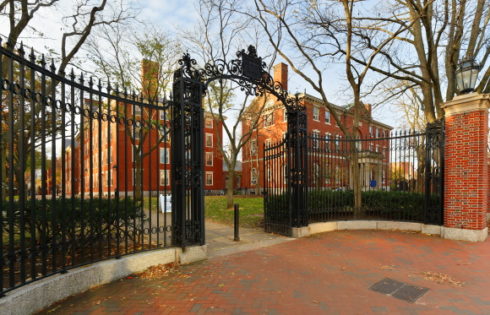
Proposed alternative legislation to redirect funds toward need-based financial aid
Some of the most prominent conservative civil rights advocates in the nation are calling on Congress to end Minority-Serving Institutions programs, calling them a “clearly unconstitutional set of federal programs that we believe Congress should defund and repeal.”
Gail Heriot, Peter Kirsanow, and Daniel Morenoff, leaders of the American Civil Rights Project, recently sent a letter to lawmakers asking them to end the programs.
“These programs are patently unconstitutional and should therefore be repealed. Federal money is being doled out to colleges and universities based on the race or ethnicity of their students,” wrote the trio. Heriot and Kirsanow also sit on the U.S. Commission on Civil Rights.
The civil rights advocates also have proposed alternative legislation that would redirect MSI funds toward need-based financial aid, specifically by enhancing the Pell Grant program.
“We are proposing to Congress that it redirect the money in a way that would be constitutional,” Heriot told The College Fix.
“For example, the money that currently goes to MSIs could be used to fund colleges and universities that educate a larger than average number of low- and middle-income students, or it could go directly to low- and middle-income students in the form of increased Pell grants,” she said.
Their March 10 letter to lawmakers argues the current MSI funding initiatives, which dole out millions of extra federal dollars to colleges and universities that maintain a certain percentage of students of color, create unfair advantages.
To illustrate their concerns, they posed a hypothetical scenario: “If Congress had created a spending program that gave money only to colleges and universities whose student populations were at least 25 percent White, no one would claim that this was anything but racial discrimination.”
Heriot, a law professor at the University of San Diego and ACRP chair, said she felt compelled to take action on this issue after the Supreme Court overturned affirmative action in 2023.
“If that decision is going to be enforced, as I believe it should be, federal programs that create incentives for colleges to discriminate need to be eliminated,” Heriot told The Fix.
Heriot said the MSI programs are racially discriminative and should be eliminated and replaced with different legislation.
“We need to stop assuming that we know who is advantaged and disadvantaged based on race or ethnicity,” Heriot said. “The world is more complicated than that.”
Daniel Morenoff, ACRP’s Executive Director, told The College Fix that the “point of the existing program is to ensure that individuals lacking access to higher education can afford it.”
“There are better ways to do that; the Pell Grant program is one of them,” he said in a telephone interview. “It’s an existing program that has no legal difficulties and directly benefits actually needy students, rather than groups that might or might not include needy students.”
He also warned that MSI programs incentivize universities to prioritize racial balance over merit in admissions.
“If you tell large institutions, ‘There is a funding source available to you, but only if you obtain a particular racial balance,’ you create a strong incentive for them to do whatever is necessary to obtain that racial balance so they can have access to those funds,” he said.
ACRP’s broader mission is to uphold equal protection under the law.
“We want to eliminate government programs that violate constitutional principles,” Morenoff said. “At the same time, we can better serve the potentially valid goals these programs attempt but fail to achieve.”
Morenoff explained how replacing the MSI programs with needs-based programs aligns with the organization’s mission.
“We’re an organization founded to restore primacy in American law–the equal protection that all Americans share rights,” he said.
“When we have identified programs that very clearly don’t live up to that standard, so we want to get the government out of doing things that it is constitutionally barred from doing and in time we can actually better how it is serving the potentially valid goals that its current programs attempt but fail to advance,” Morenoff added.
The Fix contacted the Council for Advancement and Support of Education and Exelencia in Education for comments but did not receive responses.
MORE: Trump to yank $510 million from Brown over DEI, antisemitism
IMAGE CAPTION AND CREDIT: The Congress building in Washington, D.C. / Shutterstock
Like The College Fix on Facebook / Follow us on Twitter






Please join the conversation about our stories on Facebook, Twitter, Instagram, Reddit, MeWe, Rumble, Gab, Minds and Gettr.